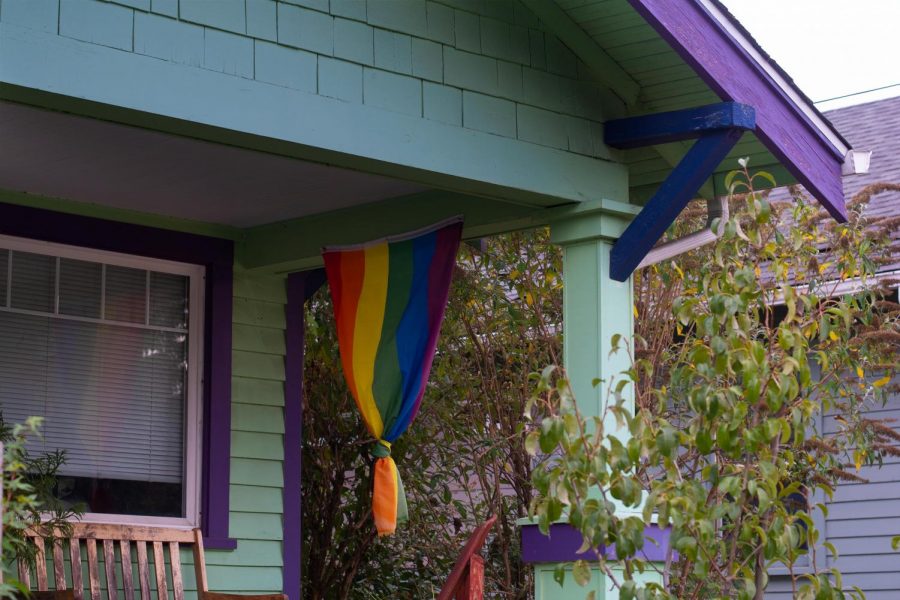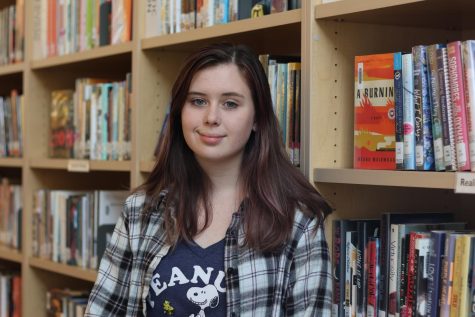LGBTQ+ Awareness Has Come a Long Way, but Bisexuality Remains Underrepresented
Though there has been growing acceptance of the LGBTQ+ community overall, stigma, misconceptions, and underrepresentation around bisexuality remain.
October 28, 2020
While the LGBTQ+ community as a whole has come a long way in being accepted and celebrated, bisexuality in particular is still underrepresented in media, and in some cases, not even recognized as valid.
Bisexuality is when someone experiences attraction to two or more genders, despite the misconception that bisexual people can only be attracted to men and women.
Along with this stereotype, there are many other false assumptions made about the bisexual community, including that they are prone to cheat since they are attracted to multiple genders, that only girls can be bi, that they experience equal attraction to both genders, that they are only bisexual because they can’t decide if they are straight or gay, that they must have dated both genders in order to be bi, and that they are not as oppressed as gay and lesbian people.
As a whole, the LGBTQ+ community has fought hard to gain acceptance in today’s world. Until 1966, when Stephen Donaldson founded the Student Homophile League at Columbia University, there were no university-sanctioned groups for gay students anywhere in the country. As the LGBTQ+ community continues to gain rights and fight for de-stigmatization, bisexuals struggle for their visibility within the community as a whole.
In an interview with the Daily Beast, Hannah, who requested being addressed by her first name, said, “As a bisexual woman who has never been in a relationship with another woman, it is always hard fighting off the erasure of my sexuality.” She also talked about her experience going to a pride parade while in a relationship with a man, saying they received glares and under-the-breath comments about how they should not have been there because they appeared to be two heterosexual people.
“I guess since our media and everything else lacks bisexual representation,” she said, “I just kind of assumed there wasn’t much of it in our community.”
Representation for the LGBTQ+ community has grown over the years, which is a huge step. Yet a majority of the time, that representation comes in the form of a white gay man, like Christian Stovitz in “Clueless,” and Simon Spier in “Love, Simon,” which is a great movie but doesn’t cover other genders or sexualities.
Without representation, it is hard for someone to realize that they are bisexual because they have not seen bisexuality anywhere else and therefore do not know if it exists. Celebrating events that make lesser-known sexualities visible gives people questioning their sexuality the representation they might need to find out who they are and feel accepted for it.
Whether or not someone identifies as bisexual, gay, pansexual, asexual, lesbian, or heterosexual, it is essential for individuals to establish that they support other genders and sexual orientations. Doing this will help perpetuate a society where being heteronormative and gender-binary are not the requirement for people to be validated.
Simply saying “happy Bisexuality Appreciation Week” to someone who identifies as bi, or posting something in honor of the weeklong celebration (which takes place mid-September), can help them feel validated and accepted.
In particular, posting about bisexuality not only supports those who are out as bisexual, but lets people who are questioning know that bisexuality exists. La Salle and other schools can mention LGBTQ+ events in morning announcements to show their support for the community.
There are also many sexualities similar to bisexuality to raise awareness about so that people can use those labels if they identify with them. These labels include bicurious (exploring bisexuality), biromantic (experiencing romantic attraction but not sexual attraction to more than one gender), omnisexual (sexuality that is not specific to any gender identity), and pansexual (emotionally, sexually, and romantically experiencing attraction regardless of gender).
Non-heteronormative relationships are skimmed over during health class and are not in the books read for class. By doing something basic, such as announcing “Celebrate Bisexuality Day” or Pride Month, students of that kinship can feel more like the school community is a safe place for them to be themselves and to feel accepted.
Picture growing up in a world where you never see or hear about someone experiencing the same feelings you do. Society regularly sweeps the entire matter of sexual and gender identity under the rug, which can lead individuals to question if they are truly feeling what they are feeling or if they are merely lying to themselves.





